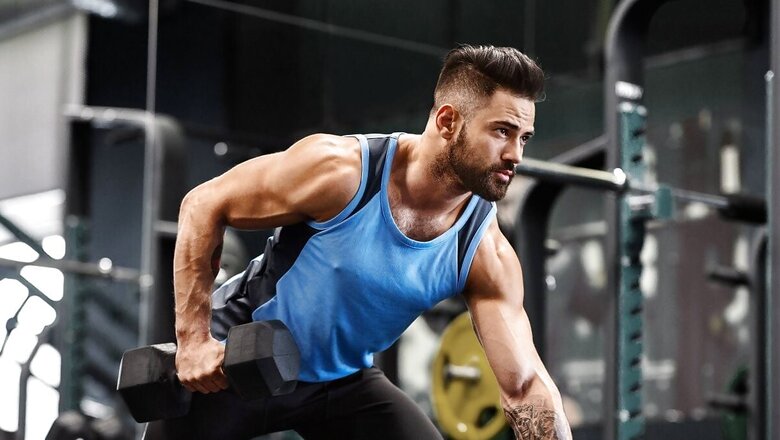
views
Walking is a fantastic form of exercise, offering benefits like weight loss, stress reduction and improved brain function. However, relying on walking alone may not provide a well-rounded fitness routine. To maximise your health gains, it’s important to pair walking with strength training. This combination not only enhances overall fitness but also helps prevent injuries and counteracts age-related muscle loss. While walking effectively targets the lower body, it does little for upper body strength. To achieve balanced fitness, incorporating a variety of physical activities is key. In this article, we’ll explore how integrating strength training into your routine can boost your overall health and fitness.
Speaking with Women’s Health, Bradee Felton, CPT, a certified personal trainer and holistic health coach said, “The general population should be performing some form of resistance training each week to prevent muscle mass loss, which contributes to a slower metabolism, lower bone density, less strength in daily activity and faster ageing. Walking increases your non-exercise energy expenditure, but it won’t increase muscle mass as well as lifting weights, which is why doing both each week is recommended.”
- Planks are a fantastic exercise that can be performed anywhere to build core strength. This exercise helps improve posture, balance and overall stability. Start by holding a position for as long as possible and increase the duration as you build strength.
- Squats are excellent for strengthening your lower body. You can start with bodyweight squats, then add weights like dumbbells, kettlebells or a barbell as you progress. Once you become comfortable with the basic form, there are many variations you can try.
- Pull-up is a challenging yet helpful upper body exercise, which targets your back and biceps. Pull your body upward using your upper body strength and with someone’s help in the beginning. It may be tough at first, but with practice, you’ll build the strength to do it on your own.
- Similar to pull-ups, push-ups are also powerful upper-body exercises that primarily target the chest, shoulders and triceps. Start the exercise by using a desk or bench, then progress to full push-ups on the floor as your strength increases.
- Deadlifts make you understand how to lift objects safely and minimise the risk of back injury. To perform deadlifts correctly, focus on maintaining proper form. Begin with no weights to practice the movement and once you’re comfortable, add weight in the process.




















Comments
0 comment